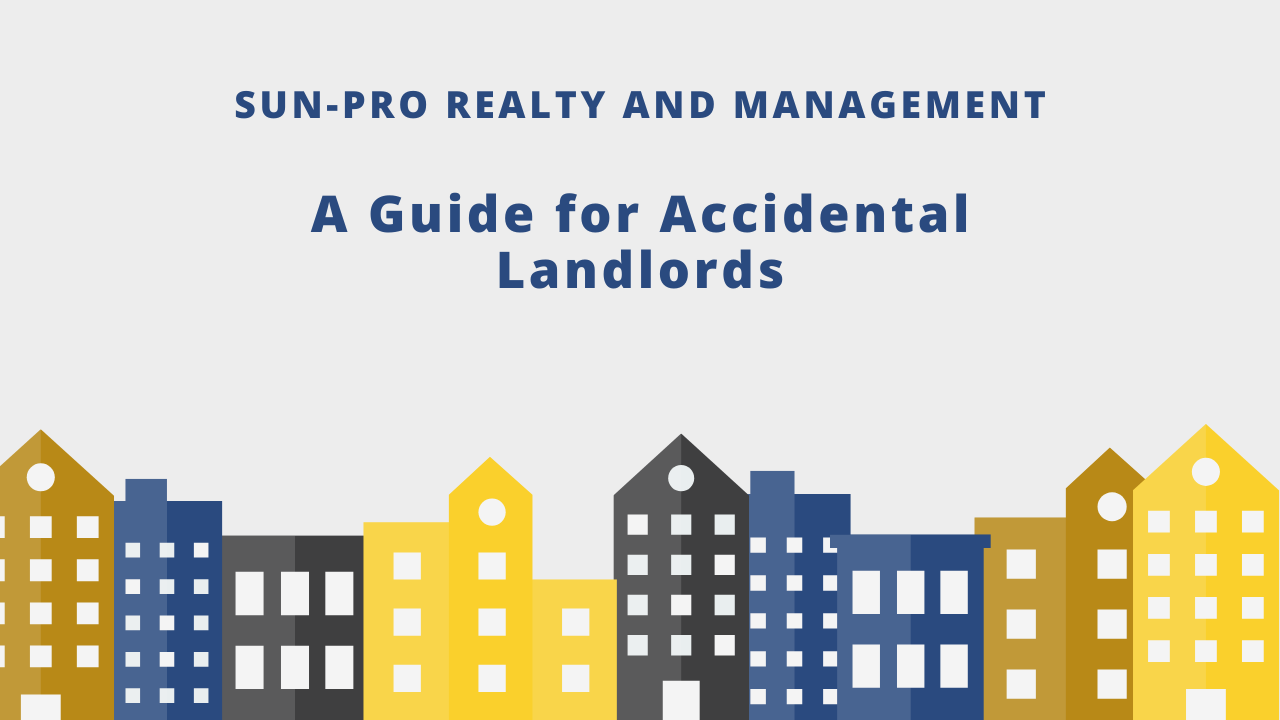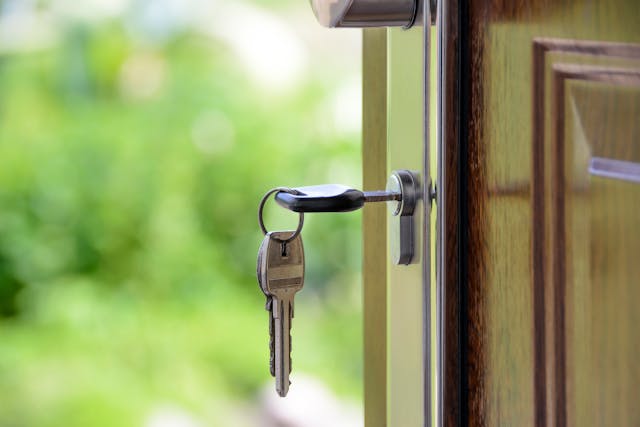
Key Takeaways
- Accidental Landlords Face Unique Challenges: Individuals can become landlords unexpectedly through inheritance, relocation, or other circumstances. While rental ownership offers financial opportunities, it also comes with legal, financial, and management responsibilities.
- Property Suitability and Preparation Matter: Assess your property’s financial viability, emotional impact, and local rental market before renting. Proper preparation, including repairs, upgrades, and documentation, helps attract high-quality tenants and protect your investment.
- Professional Property Management Simplifies Success: Partnering with Sun-Pro Realty and Management ensures expert handling of rent collection, maintenance, inspections, tenant screening, marketing, and legal compliance, reducing stress and maximizing rental profitability.
Some people become landlords unexpectedly, whether by inheriting a property, relocating for work, or choosing to rent out a previous home.
Known as accidental landlords, these property owners enjoy the benefits of rental ownership but also face unique challenges, legal responsibilities, and ongoing management duties.
Sun-Pro Realty and Management helps accidental landlords navigate these complexities by providing expert guidance, practical strategies, and professional support to protect their investment, maintain profitability, and ensure a positive experience for both owners and tenants.
Keep reading to learn more!
The Role of an Accidental Landlord
An accidental landlord is someone who rents a property due to unexpected circumstances but not as a premeditated business strategy. Some common examples of situations that can make one an accidental landlord include:
- Merging households: This involves moving in with a spouse or partner and living on one property for rental purposes.
- Inheritance: Here, the accidental landlord inherits a family home and decides to rent it out instead of selling it.
- Relocation: Some people move to distant cities or countries and rent out their previous homes.
- Property market conditions: Temporarily renting the property because market conditions are not favorable for selling is another possible reason to become an accidental landlord.
No matter the circumstance, accidental landlords have similar ethical, financial, and legal responsibilities as other professional property investors.

Assess the Property’s Suitability
Before deciding to rent out a property, it’s essential to determine whether it aligns with your financial goals and personal capacity. Key factors to consider include:
-
Financial Status: Ensure the rental income can cover all expenses, including maintenance, repairs, insurance, mortgage payments, property taxes, and management fees if applicable. A property should ideally generate positive cash flow, meaning income exceeds expenses. If the property requires additional funds from other sources to cover costs, it may be unsuitable for rental purposes and could become a financial burden.
-
Emotional Considerations: Some properties, such as a family home, may carry sentimental value, making it difficult to treat them purely as an investment. Accidental landlords should approach the decision objectively and focus on practicality rather than sentiment.
-
Market Considerations: Evaluate local rental demand and average rental prices in the neighborhood to determine feasibility. Partnering with a local property management company or real estate professional can provide a thorough rental market analysis, helping ensure the property is competitively priced and positioned for consistent occupancy.
Legal Responsibilities of Landlords
Every landlord (whether deliberate or accidental) must comply with all the legal requirements. If there are compliance issues, the landlord may face loss of rental income, lawsuits, or fines. Below are some legal responsibilities of every landlord:
Registering as a Landlord
In some areas, landlords are required to register and obtain rental licenses from local housing authorities before renting out their properties. Check with your state or local housing department for confirmation.

Lease Agreements
Before renting a property, the landlord should prepare a written lease agreement that outlines the rights and responsibilities of both the tenant and the landlord. You may hire a real estate attorney or property manager for this purpose.
These professionals will assist in drafting the lease agreement to ensure it is sound and clear, protecting both parties. The lease agreement should state:
- Repair and maintenance responsibilities.
- Rent amount and due date.
- Policies for smoking and pets.
- Terms for security deposit.
- Occupancy limits.
- Policies for property use.
Security Deposits
Different states have specific regulations concerning security deposits. Ensure that you handle security deposits according to the requirements in your location (limits on the fee amount, storage, and return procedures).
Fair Housing Policies
Landlords are legally mandated to comply with Fair Housing Act regulations. These laws prohibit landlords from discriminating against tenants based on disability, marital status, gender, origin, religion, color, or race. For this reason, all screening of tenants and rental decisions need to comply with Fair Housing policies.
Habitability and Safety Standards
All rental properties must meet the basic health and safety standards. These include having secured locks, proper sanitation, functional smoke and carbon monoxide detectors, and safe electrical systems. Landlords are legally responsible for maintaining these standards throughout the tenancy period.

How to Prepare the Property for Tenants
Ensure that the property is clean, appealing, and safe for your potential rentals. To do this, consider the following aspects:
- Perform upgrades and repairs: To enhance your property’s value and attract high-quality tenants, consider cosmetic upgrades such as modern fixtures, energy-efficient improvements, new flooring, and fresh paint. Remember to fix all maintenance issues, such as broken appliances, faulty wiring, or plumbing leaks.
- Staging and cleaning: Potential tenants want to imagine themselves in the property before renting. For that reason, the property should be professionally cleaned and staged. This will give renters an idea of how to use the place when they finally move in.
- Document the property’s condition: Conduct a professional property inspection (best done with the tenant), taking note of the condition before move-in. Keep records (videos, pictures, notes) because you will need them for reference purposes during the move-out inspection. This strategy will protect both parties from disputes over property damages.
Final Thoughts
Becoming an accidental landlord can feel overwhelming, but with proper planning, knowledge, and the support of Sun-Pro Realty and Management, it can also be a profitable and rewarding venture.
What begins as an unplanned responsibility can grow into a strong foundation for long-term financial success.
Partnering with our professional property managers ensures that essential tasks such as rent collection, maintenance coordination, regular inspections, tenant screening, conflict resolution, marketing, and eviction processes are handled efficiently.
With Sun-Pro Realty and Management overseeing your rental property, accidental landlords can protect their investment, reduce stress, and enjoy the benefits of rental ownership with confidence.
